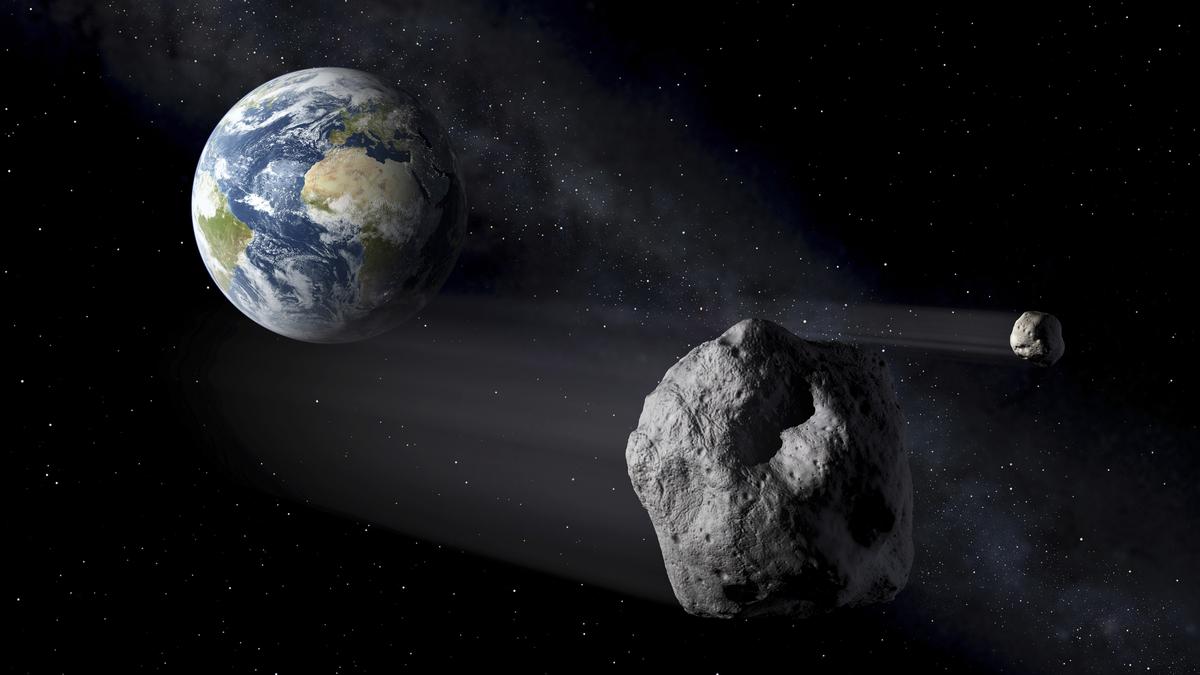 Read more: Found here
Read more: Found hereHeadlines:
Two asteroids, one of them discovered earlier in June, passed by the Earth this week, a rare occurrence with serendipitous timing to commemorate the International Asteroid Day, according to space agencies around the world.
Explaining the footage taken by The Virtual Telescope Project, astrophysicist Gianluca Masi said that asteroid 2024 MK, with a diameter of around 200 metres, was at a distance of about three lakh kilometres when closest to the Earth – 77% of the planet⁘s distance from the Moon.
Masi, founder and director of the crowd-funded service provided by the Bellatrix Astronomical Observatory, Italy, was the commentator of a YouTube feed, streamed live at about 2:30 am June 30, IST. The asteroid was the closest to Earth about 10 hours before the feed went live, according to the commentator.
⁘It is a huge asteroid coming significantly close (to Earth) this time, but luckily for us, with no risks at all for our planet,⁘ Masi could be heard saying.
⁘But being so close and so large, this object has been very bright at the time of the close approach, so that if you were in the right part of the world, like the South-Western Americas, you could (see) this with a modest binoculars, my friends,⁘ Masi continued, deeming the asteroid fly-by as an ⁘exceptional⁘ one.
The fly-by is perfectly timed to coincide with International Asteroid Day on June 30. The day, also supported by the United Nations, marks the anniversary of the largest observed asteroid strike in recorded history in 1908, when an airburst above Tunguska in Siberia flattened more than 80 million trees.
Remnants from when the Solar System was formed, asteroids are often called ⁘minor planets⁘. There are thought to be about a billion of these irregular-shaped rocky objects orbiting the Sun.
The asteroid 2024 MK, which was discovered on June 16, 2024, highlights the need to continue improving our ability to detect potentially hazardous objects in our cosmic neighbourhood, said the ESA in a statement.
No comments:
Post a Comment